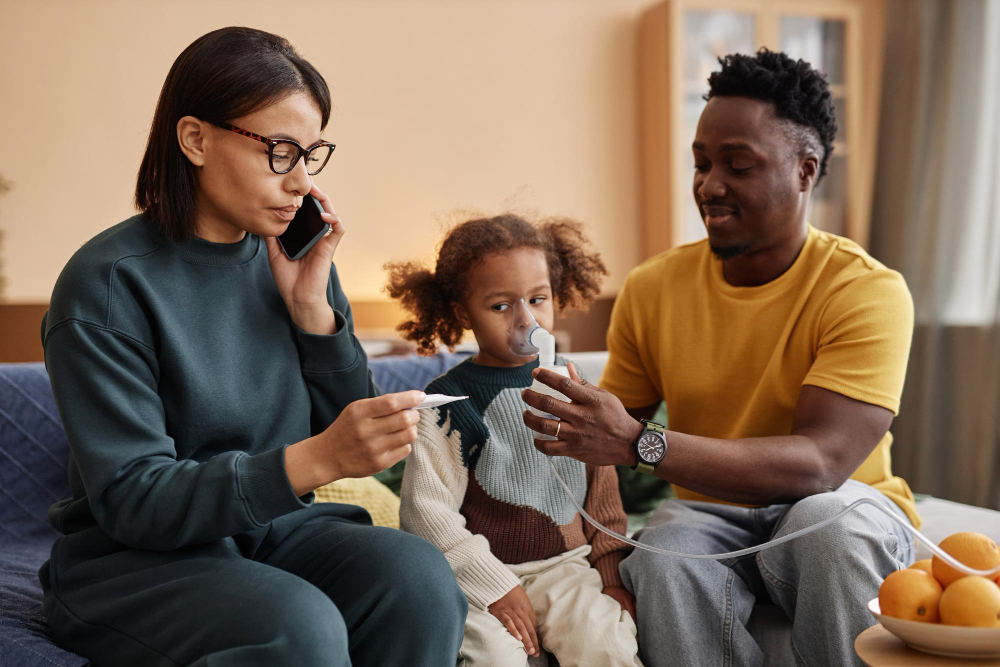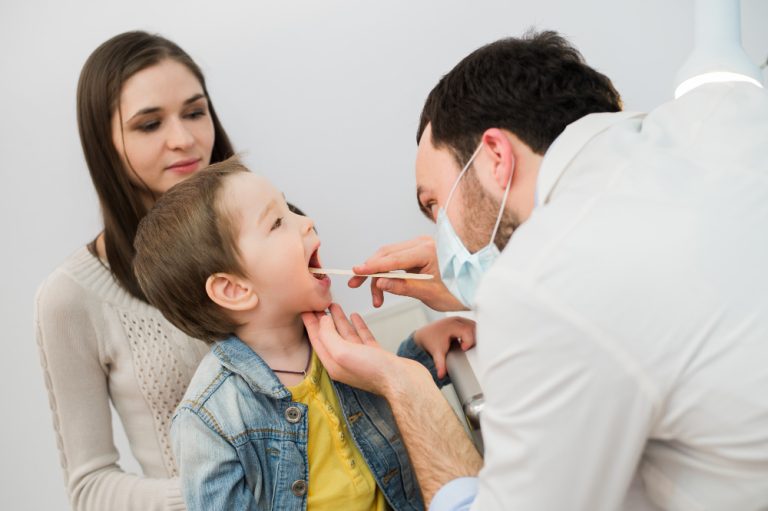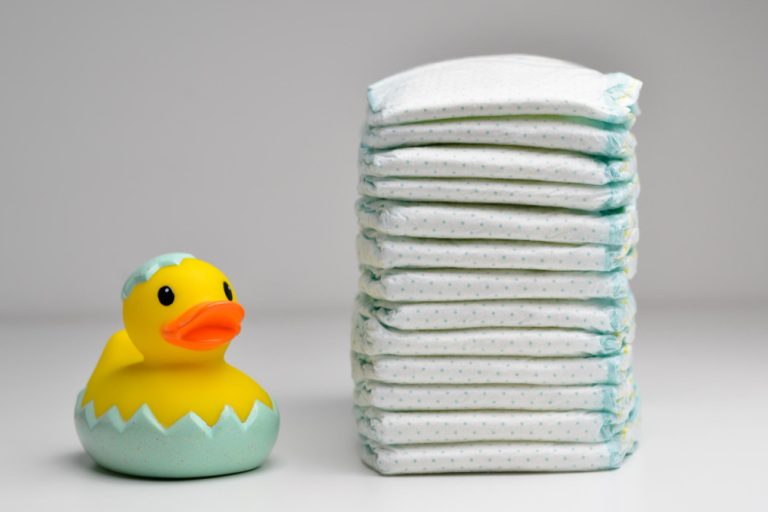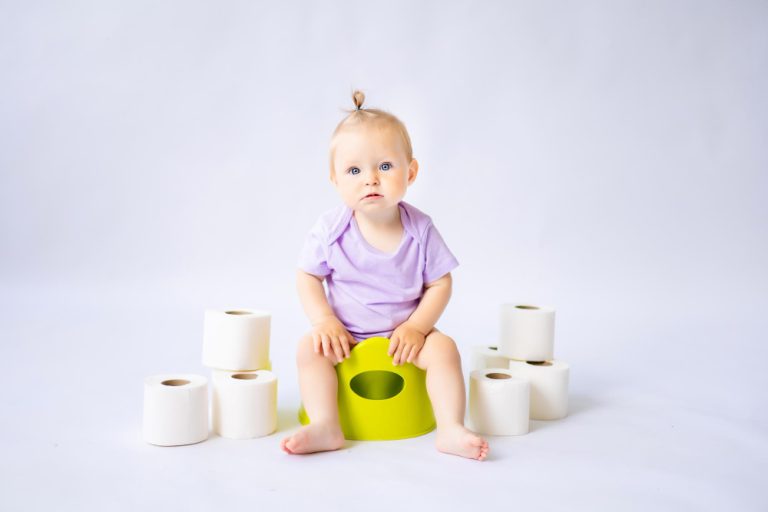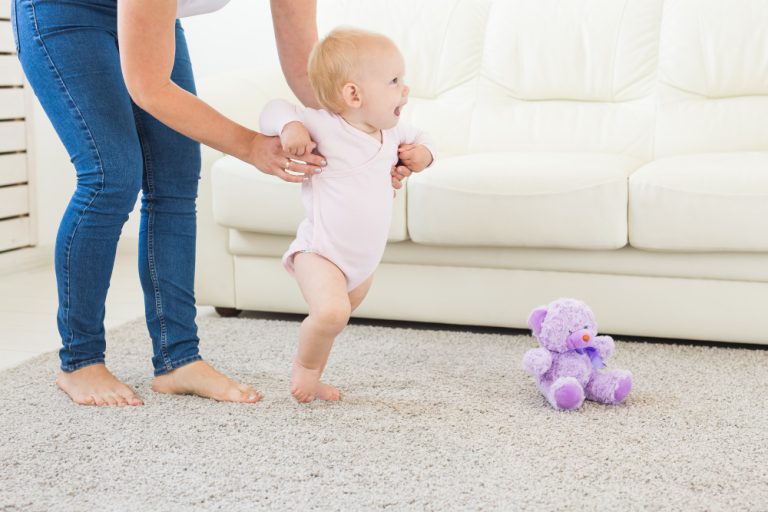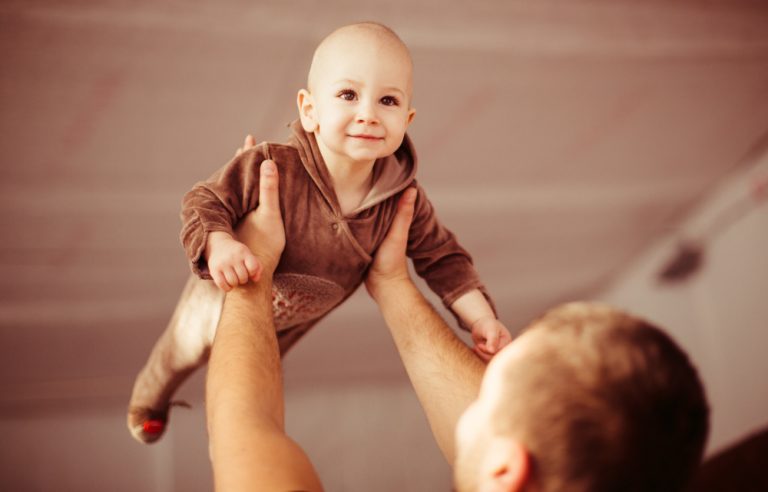How To Prevent RSV In Babies? (Respiratory Syncytial Virus)
Are you a new parent, excited to see your little one explore the world with curiosity and wonder? Do you worry about the threats that may harm your baby’s health and well-being? Have you ever heard of Respiratory Syncytial Virus (RSV), the silent danger that poses a serious risk to infants? Fear not, as armed with knowledge and preventive measures, you can shield your baby from harm and ensure that they continue to giggle and enjoy exploring the world around them. In this detailed blog, we will discuss how to prevent RSV in babies. Let’s delve straight into it!
Here’s what we have for you in this blog:
- Expert-backed tips to prevent RSV and safeguard your baby’s health.
- Understanding the symptoms and risks of RSV in babies.
- Exploring preventive measures to create a protective shield against RSV.
- Unveiling potential treatments and vaccines that can offer defense.
- Offering reliable sources and expert advice for a comprehensive approach to RSV prevention.
Empower yourself with the tools to prevent RSV in babies, in the face of this common yet potentially dangerous virus. Let’s venture on this journey to keep your little one safe and healthy.
Introduction: How To Prevent RSV In Babies?

Respiratory Syncytial Virus (RSV) is a common respiratory infection that primarily affects infants and young children. It is responsible for a significant number of hospitalizations among babies every year. RSV can lead to severe respiratory illness, particularly in high-risk groups such as premature babies, infants with underlying health conditions, and those with weakened immune systems.
RSV typically spreads through droplets when an infected person coughs or sneezes, although it can also be transmitted through direct contact with contaminated surfaces. The virus causes an infection in the airways, leading to symptoms such as coughing, wheezing, nasal congestion, and fever. In some cases, RSV infections can progress to more severe respiratory complications such as pneumonia and bronchiolitis.
Preventing RSV is crucial to protect your baby’s health and well-being. The immune system of infants is still developing, making them more susceptible to infections like RSV. By taking proactive measures, you can reduce the risk of your baby contracting RSV and potentially experiencing severe illness.
It’s important to note that RSV prevention is not only about protecting your own child but also about preventing the spread of the virus to other vulnerable individuals, such as elderly family members or those with compromised immune systems.
In the following sections, we will explore various strategies and preventive measures that can help safeguard your baby against RSV. By implementing these recommendations, you can create a safer environment for your little one and minimize the risk of RSV infection.
Spotting RSV Symptoms
RSV, or respiratory syncytial virus, is a common viral infection that can affect infants, particularly those under the age of 2. It is essential for parents to be aware of the common symptoms of RSV to enable early detection and prompt medical attention. Here are some signs to watch out for:
1. Cold-Like Symptoms
RSV often starts with mild cold-like symptoms, including a runny or stuffy nose, sneezing, coughing, and a low-grade fever. While these symptoms may seem ordinary, it’s crucial to keep an eye on them, especially if your baby is under the age of 6 months.
2. Rapid Breathing
RSV can cause difficulty in breathing in infants. Watch for signs of rapid or labored breathing, such as flaring nostrils, wheezing, or the use of accessory muscles while breathing. If you notice any unusual breathing patterns, consult your baby’s healthcare provider immediately.
3. Irritability and Decreased Appetite
Infants with RSV may become more irritable than usual and have a decreased appetite. They may appear fussier and have trouble feeding. This change in behavior can be an indication of an underlying respiratory illness like RSV.
4. Cyanosis
In severe cases of RSV, babies may experience cyanosis, which is a bluish tint on their lips, mouth, or fingertips. Cyanosis is a sign of inadequate oxygen levels and requires immediate medical attention.
If you notice any of these symptoms or have concerns about your baby’s health, it’s crucial to consult their healthcare provider. Early detection and treatment can help prevent complications and ensure your baby’s well-being. Remember, always trust your instincts as a parent and seek medical advice when needed.
Recognizing the early signs of RSV is vital to protect your baby’s health. Don’t hesitate to reach out to your healthcare provider if you notice any concerning symptoms.
Good Hygiene Habits
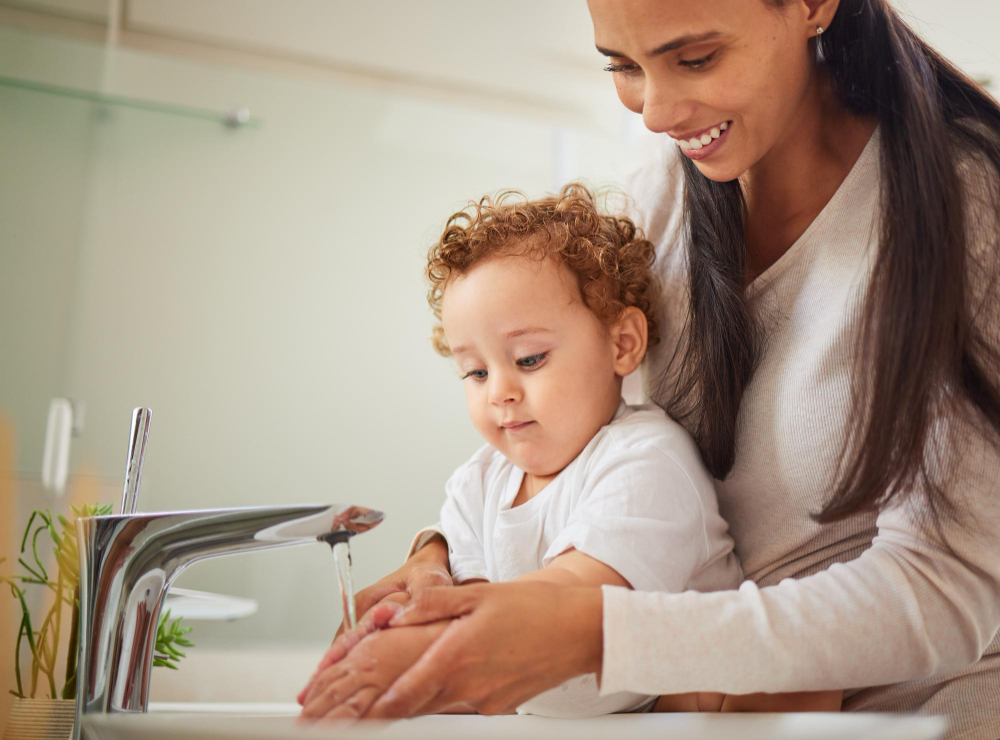
Maintaining good hygiene habits is crucial in preventing the spread of RSV and protecting your baby’s health. By following simple yet effective practices, you can significantly reduce the risk of RSV infection. Here are some essential hygiene habits to incorporate into your daily routine:
1. Handwashing
Regular handwashing is one of the most effective ways to prevent the transmission of RSV. Ensure that you and anyone who comes into contact with your baby wash their hands frequently, especially before touching your baby or handling their belongings.
Use soap and warm water, scrub for at least 20 seconds, and pay attention to areas like the palms, fingers, and under the nails. If soap and water are not readily available, use alcohol-based hand sanitizers.
2. Avoiding close contact with sick individuals
RSV is highly contagious and can spread through respiratory droplets. Limit your baby’s exposure to individuals who have cold-like symptoms or respiratory illnesses. Encourage friends, family members, and caregivers to stay away if they are feeling unwell, particularly if they have symptoms like coughing, sneezing, or a runny nose.
3. Cleaning and disinfecting
Regularly clean and disinfect surfaces and objects that your baby frequently comes into contact with, such as toys, utensils, and furniture. Use a mild detergent and water for cleaning, followed by appropriate disinfection methods. Pay close attention to high-touch areas, including doorknobs, light switches, and countertops.
4. Respiratory etiquette
Teach your family members and caregivers the proper way to cover coughs and sneezes. Encourage them to use a tissue or their elbow to cover their mouth and nose, rather than their hands. This practice helps reduce the spread of respiratory droplets containing the RSV virus.
5. Safe handling of baby’s belongings
Keep your baby’s belongings, including pacifiers, bottles, and toys, clean and sanitized. Regularly wash and disinfect these items, especially if they have been in contact with other children or surfaces outside of your home.
By incorporating these good hygiene habits into your daily routine, you can create a safer environment for your baby and reduce the risk of RSV transmission. Remember, prevention is key when it comes to protecting your little one from this respiratory virus.
RSV Vaccine: How To Prevent RSV In Babies?
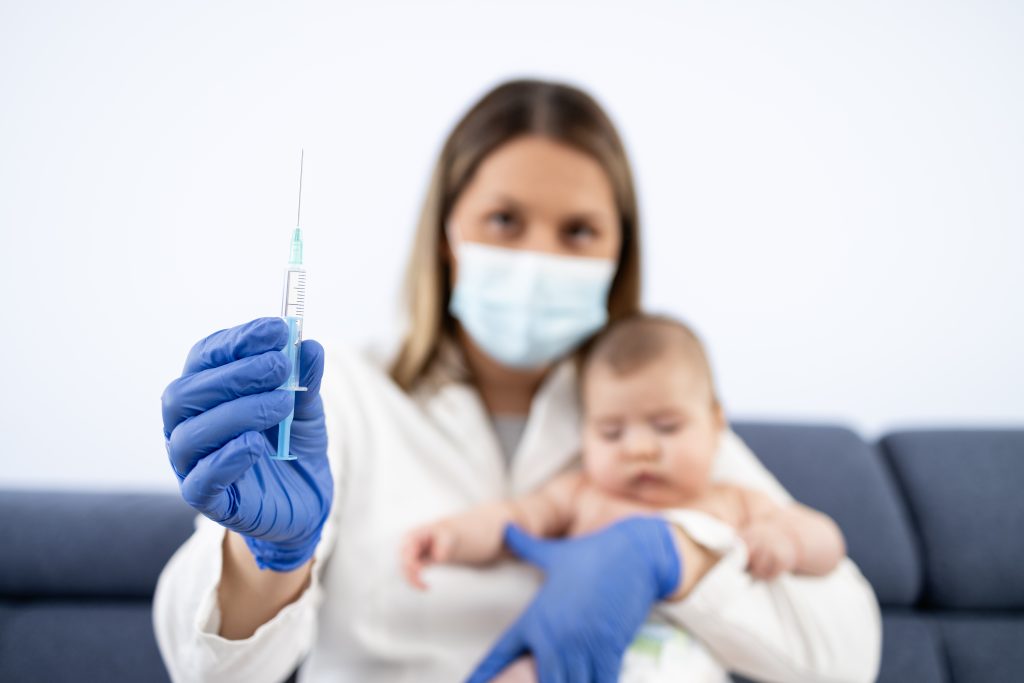
The development of an RSV vaccine holds immense promise in the prevention of this respiratory illness in babies. Researchers and scientists have been actively working on creating an effective vaccine to combat RSV, which can be particularly dangerous for infants. Here’s what you need to know about the potential for an RSV vaccine and the current state of vaccine research.
Progress in RSV Vaccine Research
Scientists have been making significant strides in the development of an RSV vaccine. Various clinical trials and studies are underway to test the safety and efficacy of potential vaccine candidates. These vaccines aim to stimulate the baby’s immune system to recognize and fight against the RSV virus.
The Importance of RSV Vaccination
RSV vaccination could play a crucial role in preventing severe respiratory infections in infants. It could potentially reduce hospitalizations, emergency room visits, serious complications, and even deaths caused by RSV. By immunizing babies against RSV, we can provide them with a higher level of protection against this common respiratory virus.
Challenges and Future Outlook
Developing an RSV vaccine is a complex endeavor due to the unique characteristics of the virus and the age group it affects. Researchers face challenges in ensuring the vaccine’s safety, efficacy, and ability to induce a strong immune response in infants. However, advancements in vaccine technology and ongoing research provide hope for a successful RSV vaccine in the near future.
Current Recommendations
While an RSV vaccine is not yet available for routine use, it’s essential to follow the guidelines provided by healthcare professionals to protect your baby from RSV. Taking preventive measures, such as practicing good hygiene habits and avoiding close contact with sick individuals, can significantly reduce the risk of RSV infection.
In conclusion, the potential for an RSV vaccine brings hope for the prevention of this respiratory illness in infants. Ongoing research and advancements in vaccine development aim to provide a safe and effective solution to protect babies from severe RSV infections.
Stay informed about the latest updates and recommendations from healthcare providers regarding the RSV vaccine to ensure the well-being of your little one.
Measures at Home: How To Prevent RSV In Babies
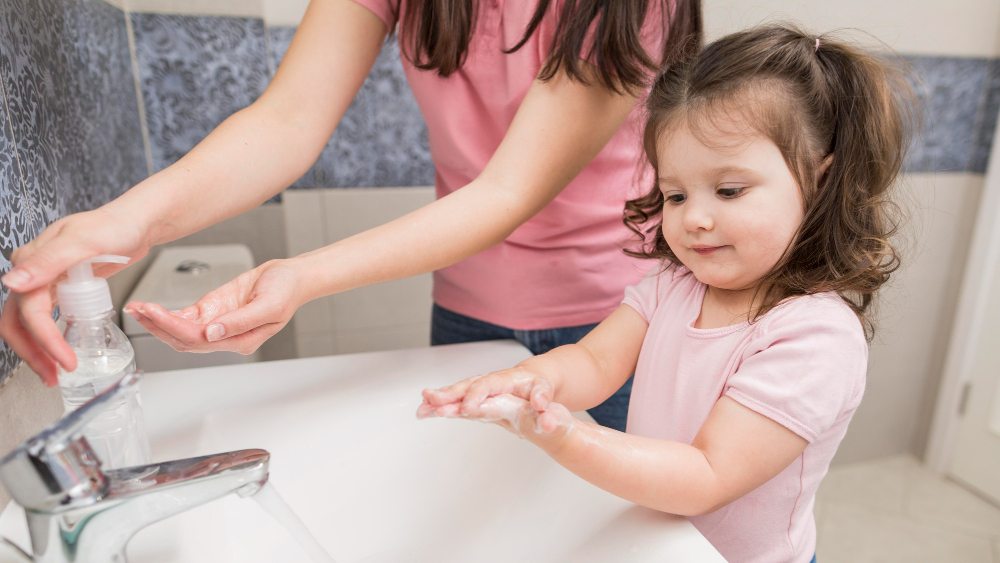
Preventing RSV (Respiratory Syncytial Virus) at home is of utmost importance to safeguard your baby’s health. By taking simple yet effective preventive measures, you can significantly reduce the risk of RSV infection. Here are some practical tips to create a safe environment for your baby:
Maintain a Clean Environment
- Regularly disinfect commonly touched surfaces such as doorknobs, toys, and countertops to minimize the spread of germs.
- Keep your baby’s living space clean and free from dust and other allergens.
- Wash your hands thoroughly before and after handling your baby or any items they come into contact with.
Avoid Smoke Exposure
- Ensure a smoke-free environment as exposure to secondhand smoke can increase your baby’s vulnerability to RSV.
- Encourage family members and visitors to refrain from smoking near your baby or inside your home.
Practice Respiratory Etiquette
- Cover your mouth and nose with a tissue or your elbow when coughing or sneezing to prevent the spread of respiratory droplets.
- Teach older children and family members to do the same, especially when in close proximity to your baby.
Limit Close Contact with Sick Individuals
- Avoid close contact with individuals, including family members, who have symptoms of respiratory infections or are sick.
- Request that visitors wash their hands before holding your baby, especially during the RSV season.
Breastfeeding
Breastfeeding provides vital antibodies that can enhance your baby’s immune system, making them less susceptible to respiratory infections.
Remember, the prevention of RSV is a collective effort. By implementing these preventive measures at home, you create a protective shield for your baby and reduce their exposure to potential risks. Consult your baby’s healthcare provider for additional advice and guidance on RSV prevention. Together, we can keep our little ones safe and healthy.
Stay tuned for more valuable insights on RSV prevention and treatment in the upcoming sections of this comprehensive guide.
RSV Treatment Options
When it comes to treating RSV, the approach primarily focuses on managing the symptoms and providing supportive care. Most cases of RSV in babies will resolve on their own with time and proper care. However, in some instances, medical intervention may be necessary. Here are some treatment options to consider:
1. Home Care
For mild cases of RSV, home care is often sufficient. It involves creating a comfortable environment for your baby and taking measures to alleviate the symptoms. Here are some home care strategies:
- Ensuring your baby gets plenty of rest and sleep to aid in their recovery.
- Keep your baby hydrated by offering frequent nursing or bottle feeds.
- Using a cool-mist humidifier to help ease congestion and improve breathing.
- Frequently cleaning your baby’s nose with a bulb syringe or nasal saline drops to clear mucus.
2. Medications
- In certain cases, your baby’s healthcare provider may recommend specific medications to help manage RSV symptoms. These may include:
- Over-the-counter pain relievers, such as acetaminophen or ibuprofen, to reduce fever and discomfort.
- Nebulized bronchodilators, like albuterol, to open up the airways and improve breathing.
- In severe cases, antiviral medications, such as ribavirin, may be prescribed. However, this is less common and reserved for high-risk infants.
Remember, it is crucial to consult with your baby’s healthcare provider before administering any medications, as dosage and suitability vary based on the individual’s age and medical history.
3. Hospitalization
Severe cases of RSV may require hospitalization, especially if your baby experiences significant breathing difficulties or shows signs of dehydration. While this can be a stressful experience, hospitalization allows for close monitoring and the administration of more intensive interventions. In the hospital, your baby may receive:
- Oxygen therapy to help with breathing and ensure adequate oxygen levels.
- Intravenous fluids to address dehydration and maintain hydration.
- Suctioning to clear mucus from the airways and facilitate better breathing.
- During hospitalization, the healthcare team will closely monitor your baby’s condition and provide the necessary support until they recover.
It’s important to remember that prevention is the best approach when it comes to RSV. However, if your baby does contract the virus, early detection and appropriate treatment can help ensure a smoother recovery. Always consult with your baby’s healthcare provider for guidance and follow their recommendations closely.
References:
Centers for Disease Control and Prevention. https://www.cdc.gov/rsv/high-risk/stay-at-home/stay-at-home-care-old.html
Support and Resources: How To Prevent RSV In Babies
When it comes to preventing and managing RSV in babies, it’s essential for parents to have access to reliable support and resources. Here are some valuable sources where you can find additional information, guidance, and assistance:
1. Healthcare Providers
Your baby’s healthcare provider is your first point of contact. They can provide personalized advice, answer your questions, and guide you on the best preventive measures and treatments for RSV.
2. National Organizations
Organizations such as the Centers for Disease Control and Prevention (CDC) and the American Academy of Pediatrics (AAP) offer comprehensive resources on RSV prevention and management. Their websites provide up-to-date guidelines, recommendations, and educational materials for parents.
3. Online Communities
Connecting with other parents who have experience dealing with RSV can be comforting and informative. Online forums and support groups allow you to share your concerns, hear about others’ experiences, and gain valuable insights.
4. Parenting Websites and Blogs
Many reputable parenting websites and blogs cover topics related to RSV prevention and treatment. These resources often provide practical tips, personal stories, and expert advice that can help you navigate through this challenging time.
5. Local Support Groups
Check with your local community centers, hospitals, or pediatric clinics for support groups specifically focused on RSV. Joining these groups can provide emotional support, as well as opportunities for learning from others who have faced similar situations.
Remember, always consult with your baby’s healthcare provider for personalized information and support. Together, with the right resources and guidance, you can better protect your baby and ensure their well-being regarding RSV.
Don’t forget to check out our previous sections on spotting RSV symptoms, good hygiene habits, RSV vaccine, preventive measures at home, and available treatment options.
FAQs: How To Prevent RSV in Babies?
Q1. What is RSV, and how does it affect infants?
Ans: Respiratory Syncytial Virus (RSV) is a common respiratory infection that primarily affects infants and young children. It can lead to severe respiratory illness, particularly in high-risk groups such as premature babies, infants with underlying health conditions, and those with weakened immune systems.
Ans: Yes, there are vaccines available to prevent RSV in babies, although they are primarily recommended for high-risk groups. Talk to your baby’s healthcare provider to determine if they are eligible for the RSV vaccine.
To sum up, preventing RSV in babies is crucial to protect their health and well-being. By understanding the symptoms, risks, and preventive measures, you can create a protective shield against RSV and minimize the risk of your baby contracting this potentially dangerous virus.
Remember to maintain good hygiene habits, seek early medical attention if you notice any concerning symptoms, and stay informed about potential treatments and vaccines.
With these expert-backed tips and strategies on how to prevent RSV in babies, you can empower yourself to keep your little one safe and healthy. So, start implementing these tips and create a safer environment for your baby. Stay vigilant, stay healthy!

